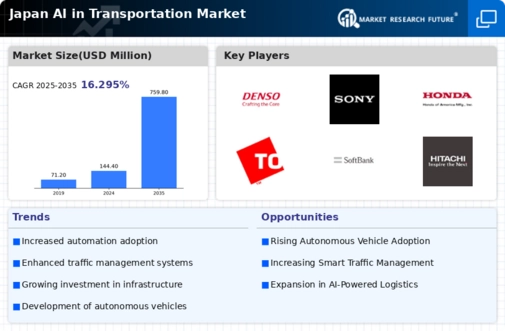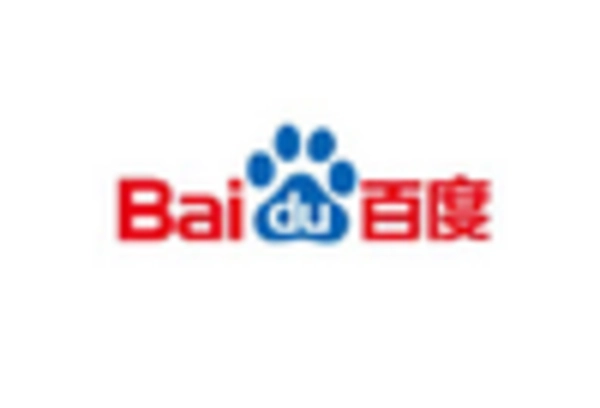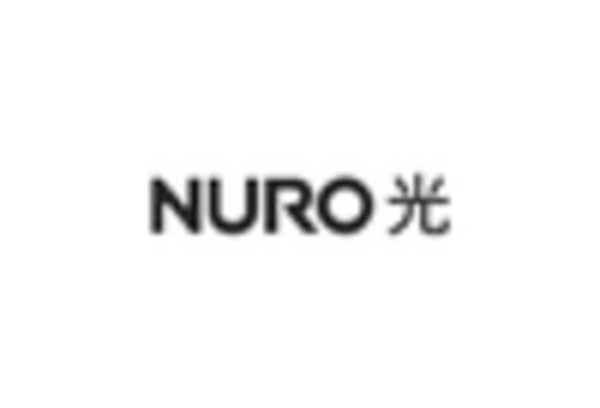Technological Advancements in AI
Rapid advancements in AI technologies, including machine learning and data analytics, are significantly impacting the transportation sector in Japan. These innovations enable the development of sophisticated algorithms that enhance vehicle automation and improve safety features. The ai in-transportation market is benefiting from these technological breakthroughs, as companies invest in AI solutions to stay competitive. For instance, the integration of AI in vehicle-to-everything (V2X) communication systems is expected to enhance real-time decision-making capabilities. This trend suggests a promising future for the ai in-transportation market, as technology continues to evolve.
Environmental Sustainability Goals
Japan is increasingly prioritizing environmental sustainability, which is influencing the transportation sector's shift towards greener solutions. The ai in-transportation market is aligning with these goals by developing AI technologies that optimize fuel consumption and reduce emissions. The government aims to achieve a 26% reduction in greenhouse gas emissions by 2030, which necessitates the adoption of innovative transportation solutions. AI-driven systems that enhance energy efficiency in public transport and logistics are likely to play a pivotal role in meeting these targets. This alignment with sustainability objectives may drive further growth in the ai in-transportation market.
Government Initiatives and Support
The Japanese government actively promotes the adoption of AI technologies in the transportation sector, recognizing their potential to enhance efficiency and safety. Initiatives such as the 'Next-Generation Mobility Strategy' aim to integrate AI into various transportation systems. This strategy includes funding for research and development, which is expected to reach approximately $1 billion by 2026. Furthermore, the government has established regulatory frameworks to facilitate the testing and deployment of AI-driven solutions. These efforts are likely to stimulate growth in the AI in Transportation Market, as they create a conducive environment for innovation and investment.
Urbanization and Population Density
Japan's urban areas are experiencing significant population density, leading to increased traffic congestion and a pressing need for innovative transportation solutions. The ai in-transportation market is poised to address these challenges by implementing AI technologies that improve traffic flow and reduce travel times. With over 37 million people residing in the Greater Tokyo Area, the demand for efficient transportation systems is paramount. AI applications, such as predictive analytics for traffic management, are becoming essential tools for urban planners. This trend indicates a robust growth trajectory for the ai in-transportation market as cities seek to enhance mobility.
Rising Demand for Smart Logistics Solutions
As e-commerce continues to expand in Japan, there is a growing need for efficient logistics solutions. The ai in-transportation market is responding to this demand by developing AI-driven logistics systems that optimize delivery routes and reduce operational costs. According to recent estimates, the logistics sector in Japan is projected to grow by 5% annually, with AI technologies playing a crucial role in this transformation. Companies are increasingly adopting AI to enhance supply chain visibility and improve customer satisfaction, which is likely to drive further investment in the ai in-transportation market.
















